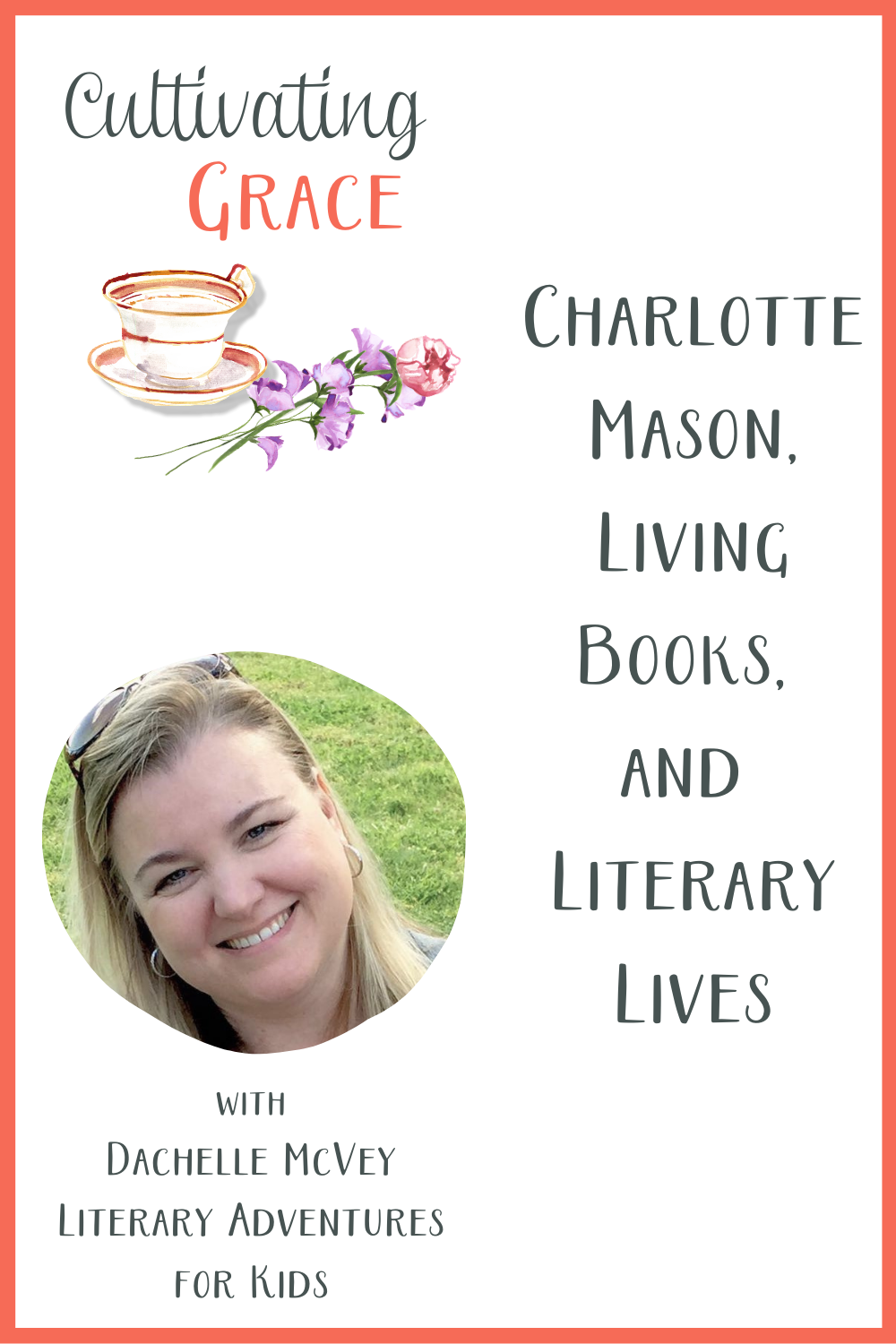
Listen here:
Resources and Living Books list mentioned:
Dachelle’s blog Hide the Chocolate
How to tips for Charlotte Mason narration
IEW Timeline of Classics (resource for teaching the classics)
The 5 Best Christian Adventure Series for Boys
20 Living Books for Advent and Christmas
Literary Adventures – Family Book Clubs
Charlotte Mason Books
Home Education Parents and Children
Parents and Children School Education
School Education Ourselves
Ourselves Formation of Character
Formation of Character A Philosophy of Education
A Philosophy of Education
Cultivating Grace: Literary Lives
Lara:
Hello, friends. And welcome to Cultivating Grace. Today we are going to be discussing literary lives with our friend, Dachelle, from Hide The Chocolate. So Dachelle, will you tell us a little bit about yourself?
Dachelle:
Absolutely. I’m Dachelle McVey, and I write about our relaxed Charlotte Mason Homeschool at HideTheChocolate.com. And I also write literature courses at literaryadventuresforkids.com.
Lara:
That’s so fun. And you have a lot of really cool courses we have looked at. So reading is obviously something you’re passionate about.
Reading is really a gift and it often gets brushed over in modern educational ideas, and they use it mainly for the presentation of really dry facts in textbook form.
Why is it important for children to love reading?
Dachelle:
Well, you develop an imagination as a child, and if you don’t cultivate that imagination, then it’s going to disappear. And I think that a lot of our great thinkers and innovators, and those who’ve been able to think outside the box, were those who cultivated an imagination as a child, and they were able to dream big. So it’s wonderful to say that we are grounded and focused, but if you don’t have those great thinkers, those dreamers, then there’s never going to be a lot of progress for you in the world.
And I think those are the people that can actually step outside the box and think of things that maybe they never thought of before, or other people haven’t thought of before, and given us these great inventions and innovations, or just simple things, that help us have lives that are more meaningful or deeper. And I just think that is an important part of educating. It’s not just to learn the dry facts, because we do have to learn facts. We know that. But to learn them in a way that makes education interesting, so that you become a lifelong learner, and not just an 8:00 to 3:00, Monday through Friday learner.
Lara:
Absolutely. I really feel like that inspired curiosity that our children get when we give them the great tales and things to learn from, I really think that is super important in developing their character, even as an adult. I think those stories plant those seeds.
Do you have a favorite hero?
Dachelle:
No. People are always asking me, do you have a favorite? No, because, and really the truth is, I read a lot of different types of literature, and right now I’m reading at different levels with my children. So it depends on what I’m reading at the time. And I have a tendency to fall in love with the characters, and become very absorbed in them. So if we’re reading, like we just finished not too long ago To Kill A Mockingbird, and I just became so obsessed in that, and that I wanted to be some of those characters, and do all these amazing things. And so that encompassed me.
But then we switched to something else. And so, yeah. I’m an eclectic person, and I don’t have biases against books, but I also don’t have favorites. Isn’t that awful? I don’t have favorites. People always ask me, “What is your favorite book?” I don’t. I don’t have a favorite. I really don’t.
Lara:
My answer is usually, “Which genre?”
Dachelle:
That’s true. That’s very true.
Lara:
I mean, it depends. I can always go for Jane Austen.
Dachelle:
See, you go in the classics there, and then you think modern day, and then I’m very much a lover of young adults. So I can so totally throw in your Percy Jackson there for a hero too. So you just asked me, what genre, maybe even what era, and I’ll tell you.
Lara:
Awesome. So I have a quote here from Karen Swallow Prior. “Reading well adds to our life. Not in the way a tool from the hardware store adds to our life, for a tool does us no good once lost or broken, but in the way a friendship adds to our life, altering us forever.” And I just really love that. I know in your literature studies, you really focus on helping the children pull everything they can out of the book. So what do you think it really means to read well?
Dachelle:
I think it’s important for kids to get into the story, and not just to read for an assignment, not just to read because their mom said they need to read this for their history or whatever, but to really understand the characters, and what the author was trying to achieve with the story.
And most authors do have an underlying moral thought, whether you agree with it or not, there’s going to be some kind of thought they’re trying to teach you. And so I think it’s important for kids to get into the book and really understand the characters. And that’s, like you said, where there are literature studies, I don’t want them to just know, okay, X did so-and-so. I want them to understand why do they do so-and-so. Well, because in that era, this was going on, the history behind it, or maybe it’s a scientific thing, or they need to understand the science behind whatever they were doing it, or just maybe it’s cultural. So we try to dig into those deep things. We call them rabbit trails, where we’re trying to dig in deeper and try to understand what the characters are doing and why they’re doing it, not just what you read. You’re going to have to go a little deeper and find out.
And I think that’s important for kids to understand, especially when you’re reading things like we consider the classics, because our kids are living in 2020, and they may not understand why on earth somebody would be talking like that. That’s not even an issue. But it was an issue at that time.
And at the same time, I think that it’s important that kids also do some hands-on exploration. So if we’re talking about something, like in To Kill A Mockingbird, since we were just talking about that, there’s a lot of talk about things out in nature. So we actually, when we’re doing that, we actually went out in nature and started really looking at plants and things, and drawing them, because that was a big part of what they did, is they spend all this time out in nature, out in their yards and playing around. So I think it’s important when kids get the multi-modal learning, that they’re learning with not just reading, but also with touching and feeling and smelling and everything else.
Lara:
Yes. I love, especially with narration, because narration can take on different forms. You can have the newspaper articles or the dramatic recitations. But I feel like it opens up that conversation with the book.
And I really feel like reading is a conversation with the book. You’re learning to talk to the characters, and you’re learning to listen. And you’re learning that empathy from the things that they’re going through. And the humanity in the stories, I think, is really important.
My 10 year old just finished The Devil’s Arithmetic. And he had such a different experience, because he’s read all these books about war that were great living books, and had these wonderful stories in them. But that one really dealt with the humanity aspect, and the personalities and the things like that. And so it was a very different experience for him to pull from that. And then of course, that does always lead to rabbit trails, why did this happen there, and how was that allowed, and all those fun things.
So how do we train our children and encourage them to read well, as opposed to just skimming through things for an assignment?
Dachelle:
Do as I say, not as I do, you mean? I think, yeah. Okay. So this brings me to a point that I’ve been thinking about a lot lately. And we, as a society, have become skimmers. And I will admit to that, just as readily as anything else, that if it’s something that I’m reading that’s on the internet or digitally, I generally skim. It’s just what I’ve gotten to do. But I’m when I’m reading a book, I want to read it because I want to get into the character and learn about what’s going on.
And I think that, as a society, we’re teaching our children to not have patience. And I shouldn’t just say children, we’re teaching ourselves, because I’ve noticed that over the years I’ve become much more impatient. So I’ll start to sit down and read a book, and there’s a lot of descriptive, I might start skimming through that, because I’m like, “Oh wait, no, I know that,” but that’s because we’ve gotten trained to everything is quick and ready, and it’s available to us. And we’ve created this society of people who are not critical thinkers anymore.
And I’ve seen that in myself. And I know that I’ve seen that in a lot of people I know lately. But just the fact that you can share any article and people will read it now, and just believe it’s fact. That, I think, is a product of us not being critical thinkers. We’re not actually really absorbing what we’re reading. We’re not really thinking about it. We’re not really pondering it and saying, “Okay, is this legitimate? Is this logical? Or is this a red herring?” And I think we get trapped in this, where we’re just skimming and we’re not really getting the full information, and we want the quick information. We want it easy. And we want an easy read, that we’ve lost the ability to really think about what we’re reading.
And when you look back at years past, when our great thinkers… I’m talking to my kids today. I was doing a homeschool co-op on civics, and we’re talking about the Declaration of Independence, and I’m reading these words. And I said, “Thomas Jefferson wrote with beautiful words,” and this is a gorgeous… Just reading it was just so lovely, and it flows, and you just want to be inspired by it. But the kids are looking at me, going, “I don’t know what she is saying,” because they use big, wonderful words. But they don’t have a clue. So I’m having to stop and explain the words.
But these were great thinkers that had these visions, and they could see past what they were being told by the British government about what they needed to believe and what they needed to do. And they started saying, “Okay. But what if we want more? How do we do that? How do we go about that?” And they thought that, and then they expressed it, and then they signed their names to it, even though they could die over it. And I don’t see us in that type of a world right now, because I feel like people aren’t making those do or die moments over something that’s really important. I think they’re making it over something that’s not a big deal, because they haven’t really sat down and thought about, “Is this a do or die moment? Is this something that’s worth my life, that I write my name on this and I’ll die because I feel that strongly about this freedom of our country,” versus, “I really, really like what she said on Facebook.”
So I think it’s important to teach our kids to start reading, to love reading, and to be inspired by it, and to choose to jump into the story, and be that character, or be that character’s best friend, instead of just reading something to skim through it and get a general gist of it, so that we can say, “We read it.”
Lara:
Right, yeah. I think we’ve become a very instant gratification kind of society.
Dachelle:
Absolutely.
Lara:
And it’s very evident. I mean, the Declaration of Independence, several of the men who were involved in that, they were very young. There is not a 23 year old right now that I can think of that would be able to write as eloquently as that was done. And so it’s very interesting to me how our society has gravitated to quick and instant. And your comment about articles, sometimes people just read the headline and they don’t actually read the article, where the article may make sense. The headline may just be something that stirs up anger-
Dachelle:
Mm-hmm (affirmative), exactly.
Lara:
Seems to be pretty common anymore. I think teaching our children to read critically is also, it’s so important. And for our family, we do all the critical thinking through a biblical worldview. And it’s really imperative for us that our children be able to discern the difference between what’s right and what’s almost right. Because if something’s wrong, it’s usually pretty easy to just say, “That’s wrong.” But I think we’ve lost that critical thinking component as a society. And I think hopefully all the new people that are homeschooling will help bring that back into the norm.
Dachelle:
Well, I said, and I don’t want to say that as a negative to our children, because there are some great thinkers out there. And I look at my kids, and some of the kids I’m teaching in co-op, and I’m impressed so much by what they say. So I’m not saying that we’ve lost it. I’m saying that we can lose that. And I’ve caught myself doing that, reacting to, like you said, an article’s headline, and then when you read it, you’re like, “Oh, well. That was just to get you to read it.” That’s not really all that big a deal.
So I think it is important that we help our children, like you said, to the worldview that you think, as I like to say, I want my children to grow up to be socially responsible citizens. And my view of what that is versus your view may be different. But in the general aspect of that, that means I’m thinking of others before myself, and I’m not being selfish. I’m being selfless.
So how can I help my fellow man to be a better person? And when we stop thinking of something, because like you said, an instant gratification, of instant, “Oh, I’m angry about this,” or, “Oh, I’m excited about this,” and really think about how is this affecting our society as a whole. I think that can only better us. And it can only make our world a better place for our children. And I think that our kids have that ability. But there’s just so many people and so many things that are pulling them, and we have to be really strong to say, “This is our world,” because like you said, the right worldview.
And that brings you to anything you read in books. Make sure that that book, when you’re talking about it, even if it’s not the worldview that you perceive is the correct one, you talk to your children about that. And we have a lot of those questions and talks when we talk with our kids about the classic literature, because almost every American classic or British classic book that I’ve done a literature course on talks about some really big stuff, big issues, adultery, racism, you name it, they hit every one of the big topics.
And even though we may not agree with what the character did, we can understand where they’re coming from. And then we can talk about how would you have done this different, or what should have been different. And obviously that outcome didn’t work out well for them. So what outcome could have been better? And I think that’s important, is not to shy away from those big issues, but really talk to your kids about them. And reading opens that up. You don’t have to sit down with your kids and say, “Let’s talk about this big, juicy, horrible discussion.”
Lara:
Right?
Dachelle:
You don’t want to. Let’s read a book about it, and then say, “Hey, what’d you think about what they did?” It’s so much easier to talk about those things in that way.
Lara:
It really is. That’s one of, I think, the best things about reading, is the conversations that it opens up. And I enjoy reading some of the stuff that I assign to my children, because it’s been so long since I read it. I don’t remember half of it anyway.
Dachelle:
Yes.
Lara:
He’s hit the age where I have to pre-read.
Dachelle:
Yes.
Lara:
And not everything. Some things, like The Devil’s Arithmetic, I read in the fourth grade, but it was one of those books that just stayed with me my entire life. And I re-read it multiple times. So that one I didn’t have to pre-read. But he’s got two or three on his cart that I have assigned to him and I know the summary of, but I haven’t fully read yet. And because he does take things emotionally, in some cases I have to pre-read so that I know how I’m going to talk to him about those subjects. But it does. It opens up those great big conversations. And it’s much easier than when you sit down and, “So, hon’, let’s talk about… ”
Dachelle:
Exactly.
Charlotte Mason, Living Books, and Twaddle
Lara:
What do you think makes a book or story good? And I know you’re more Relaxed Charlotte Mason than we are, but what, in your opinion, makes the story a good story?
Dachelle:
I think that a story that makes you think is a good story. And I know that there’s a lot of people out there that will consider silly or nonsense books not good books, because they’re silly or nonsense. But some of our favorite authors are people like Shel Silverstein. And I love Shel Silverstein, because his books are nonsense, and they’re silly, and they’re funny, and the kids love to read them. But they also have usually a really interesting spin on them that make you think. So they’re not just simply funny, funny, ha ha. If you really read them, they make you think about some moral issue.
So I think any book that makes you think is a good book, whether it makes you think something and you disagree with it or not, that’s not what’s important. There’s plenty of books that I’ve read out there that I thought at the end, “Well, ugh, I didn’t like that at all.” I didn’t like the way it ended. I didn’t like the characters. But if it made you think, even if the thought was, “I don’t like that,” then that is a good book.
So when the Charlotte Mason twaddle question comes out, I often think that twaddle to me is something that has no meaning, is worthless to you, kind of like busy work. That’s how I put it. I think of it as busy work, that stuff the teacher made you do because they really needed to go run this errand, and they gave you something to do in the classroom so that you wouldn’t get up and bother everybody else. That’s what I think of twaddle, is just busy work. Something that really has no value to you. But it’s really hard for me to say that there’s a lot of those books out there, because maybe I just don’t read them. But most books have some value to me.
Lara:
Yes. I think for us, it’s anything that talks down to the child. I mean, we enjoy silly poetry. I love Ogden Nash, and I’ve read quite a bit of Shel Silverstein. I don’t particularly like The Giving Tree – and please, nobody throw tomatoes at me for that.
Dachelle:
No mother does.
Lara:
You know what? I feel like that’s the truth, sort of like on the flip side, what is that, Love You Forever?
Dachelle:
Oh, yeah.
Lara:
So it’s sweet, except when you really think, “I don’t want to be that kind of mom, not to that degree. That’s a little creepy.” But no, no. I think anything with rhyme and rhythm, and there are, there are a lot of points I think he makes that are funny. And some of them are sort of snide. I enjoy a little bit of snark every now and again. Speaking of headlines people will get angry over, don’t share Babylon Bee articles online.
Dachelle:
No, definitely don’t.
Lara:
People just get all kinds of mad-
Dachelle:
They don’t understand that-
Lara:
It’s satire. Satire is a great way to make you think.
But I think anything that talks down to your child, anything that dumbs down the vocabulary, children are capable of understanding so much more than I think we give them credit for. And so for us, it’s more about if the content is just, like you said, if it’s worthless, if it doesn’t hold any moral value, or if it teaches what we would consider to be things that are immoral, if the lead character is sassy and disrespectful through the whole book and there’s no redemption aspect at all, that tends to be something that we don’t bring in. I love a story where the character starts out that way and then turns into a nice person. Emma-
Dachelle:
Yeah.
Lara:
There you go. Emma is the perfect example. So I think that, I think for us, twaddle falls more into that category. And I think there are books out there like that, but I don’t read them either.
Dachelle:
Yeah. That’s the thing. And as I’m looking through my library, do we have anything… No, we don’t have any of that.
Lara:
We have carefully curated libraries, because we love reading.
Dachelle:
That’s true.
Choosing excellent living books
Lara:
Yes. So what are your top three tips for choosing excellent books?
Dachelle:
Okay. Well, I think the top tip I would say is, especially if you’re trying to inspire your child to have a love of reading, is to pick books that would be interesting to them. And you know what those are. You know your children. So don’t try to overwhelm them with some classic book that you think is amazing and they need to read it when they’re first starting out. You’re trying to inspire them to read. Because that’s going to just drag them down, especially if it’s hard to read.
So I would start with a book that they’re going to be interested in. For example, when my daughter was young, she loved horses, absolutely loved them. So it was really not hard to find her some great books by some amazing authors about horses. That wasn’t hard to do. And I could go from the realm of My Friend Flicka to some of my favorite books growing up that were probably 150, 200 years old. I could flip back and forth into the modern books, because she liked that. So she could be inspired by the subject. So that’s what I would say start with, is that.
Also look at your books and think about what the value is. And we talked about twaddle. Is there a value to this? Is there a moral lesson? Is there redeeming aspects to the characters? Like I said, even if it’s not, the characters are doing things that you know weren’t acceptable in your home, but if they’re showing a way that obviously that didn’t work out, or there’s a better way.
There’s books that we’ve read about things that the character did awful things, but it was never portrayed as that’s a great thing. They may have been messed up with some issues, and then you see that because of that, that’s where they went wrong, and how when they straighten their lives out, that things became better.
So you need to look at the storyline, and what you’re teaching, what it’s teaching. But I think then an important part too, is to make sure that the books… Well, let me say this. Don’t always listen to what everybody says. Again, there are some books out there that people say, “You have to read this book. You just have to. It’s a classic,” and blah, blah, blah. Maybe not. You don’t always have to read everything anybody says.
Well, the problems we have is when we’re picking up books to go with our American lit series, or our British lit series, is people tell us, “You have to read this,” and then we’ll get into reading it. And I’ll look at my daughter, and I’ll say, “I can’t do this anymore. I can’t read this book. Just, I can’t do it.” And she’s like, “I get it. I understand.” It’s a funny thing that you said Emma, because she was reading Emma, and working on that one for one of our courses, and she got to the end and she goes, “I just want you to know, I don’t like Emma, and I can’t like Emma.”
Lara:
How funny.
Dachelle:
It’s okay, because as you know, I don’t like Mark Twain. And I can’t make myself like Mark Twain. So it’s okay. I don’t have to like Mark Twain. She doesn’t have to like Emma. It’s all good.
Lara:
I dislike anything by Herman Melville.
Dachelle:
Oh, see? There you go. Yeah. Well, I’m not crazy about Herman Melville either.
Lara:
I will not require that because I don’t want to go through it again.
Dachelle:
Frankly, there are some books that you’re thinking, “Oh… ” Like when we did the Scarlet Letter, I thought, “Oh, I have to go through Scarlet Letter again.” And I remember that in high school, and I just didn’t care for the Scarlet Letter. I mean, I know it’s got some great points and all, and there’s a lot of moral things to discuss. And it was the very first American literature, well-known book published, but ugh.
Lara:
It’s like the broccoli of the literature world. Sometimes you just have to make yourself eat it anyway.
Dachelle:
Exactly. I’m not sure that’s helpful tips, but-
Lara:
It is. I think a lot of people need that reassurance. We don’t have to check off every book on every list. My list is going to look very different from somebody else’s list. Part of that is because I’m the one curating my library. So my taste is obviously going to be on display. And somebody else in their library has their taste on display, and they’re not going to be the exact same, and that’s okay. So we don’t have to check off every single box, every single reading list.
Dachelle:
That’s right.
Lara:
We don’t have to check off every single box of the same reading list. And I think it’s important, especially with all of our new homeschoolers entering into the homeschooling world, as a surprise this year. I think they need that reassurance. You don’t have to read everything. I can think of several that I would probably just choose to skip.
I might, speaking of satire, I read Candide in high school. I would not recommend that for high schoolers. I feel like that should have been reserved for a little bit more frontal lobe development college years, because that one’s packed. And so I think you also have to be aware of what’s going to fit your child, what level are they at?
I always caution people not to use grade level lists, because that is just not a good indicator. When you’re choosing books for your child, you have to go by what you know. Like you were saying, some children are just not ready for heavy stories in the eighth grade. They may need to wait until their 10th grade year to read certain books. Some kids will be fine with… I read the Scarlet Letter the first time in the fourth grade.
Dachelle:
Oh, wow. Okay.
Lara:
I started reading really early. I also read Gone With The Wind that year.
Dachelle:
So there you go.
Lara:
We won’t go into-
Dachelle:
Some of the books that shaped you as a person?
Lara:
Yeah, they probably did. I always thought Rhett Butler was intriguing, and I always thought Scarlett was a brat. So I don’t know. It must not have formed me too much. I thought Melanie was a little bit, I thought mealy-mouth was probably a good description of her.
Dachelle:
Yeah, I would agree.
Lara:
Bless her heart. And now that I am a grown mother, I look at that whole book, and I’m like, “You know, Melanie really was… She’s the best one in there,” out of that particular section of the book.
So it’s dependent on where your children are and what their levels are.
And people that have gifted kids, a lot of times, have trouble with those book lists. I think they have to… They feel stuck sometimes. And if you have resources for this, that would be amazing. We can put those in the show notes. But they can’t find books at their child’s reading level that don’t contain inappropriate content.
Dachelle:
Oh, yeah. I definitely would agree with that.
Lara:
And so they feel like they’re stuck reading all these classic books, but not all the classics have totally appropriate content either. And so I think that that’s just something you have to be wary of, as your children’s teacher.
Inspiring a love of reading in public school children
Lara:
So the last question, and the biggie, what advice would you give to a new/accidental homeschool mom who wants to inspire a love of literature in her children that has been a little bit dimmed through traditional schooling?
Dachelle:
Okay. Well, I’m going to give you an example from my own life. So I have three children. My eldest, he is significantly older than the younger two. So he was pretty much through school. He was in high school by the time we started homeschooling the two younger ones. And one of the things I noticed that when he was young, and we would, like I said, I love to read, I read all the time. So sitting down with him with Chronicles of Narnia when he was in kindergarten wasn’t a big deal. We read these and I was so excited to introduce him to great books that I loved.
And so he read a lot as a kid. And when he went to school, I didn’t really pick up onto it until probably about second or third grade. But they were doing the AR programs, which I’m sure most people know, the Accelerated Reader programs. And there was always a reward system. So you read the book, you answered 10 questions, and you got some reward. And at the end of the year, you got to go on a field trip. Or at the end of the semester, you got to go on an ice cream party, whatever. There was always some reward.
I didn’t really think of anything about it, because as a kid, I loved to read. So I read just to read, and it didn’t phase me at all. But what I discovered was, all of a sudden he stopped wanting to read. And he started doing the quizzes on books he had watched movies of. And in my house, we don’t watch the movie until we’d read the book, because I have yet to find a book… Well, I take that back. Mary Poppins was better than the book. Sorry, I hate Mary Poppins, but I love the movie. But pretty much every other movie I’ve watched doesn’t stick to the book enough for me to like it.
So he started taking these quizzes, and I was like, “What is he doing?” And I realized what happened is, this reading was no longer for enjoyment, was no longer for fun. It was an assignment. And it was to get this amount of stickers, this amount of points, this amount of whatever. Okay. So I wrote it off as he’s a boy, and everybody said, boys do that. Okay.
Well, I never really thought through this. My father is an avid reader, and he never did that. So I never really thought of, my father’s a boy, and he didn’t do that. But I went with, okay, he’s a boy. He just wants to go play sports. So he’s just getting it done, until I put my younger two into school.
And my next child who was, like I said, significantly younger than him, started doing the same thing. And then she would come home, and she would say to me, “Mom, I read 25 pages today.” And then the next day, “Mom, I read 26 pages today.”
And I kept thinking, why is she telling me how many pages she read? That’s a weird thing to say to your mother. “I read 25 pages a day,” instead of, “Hey mom, I read about this story, and this boy did this.” You know, it wasn’t that. It was always 25 pages. And then I realized it was the same thing. And what her teacher was doing, was when you read so much and you got so many points, the next nine weeks, you had to read more, and you had to read more, and they get getting cumulative until the last nine weeks. We were going to have this giant party outside with these bouncy houses and everything, and she had to read all these points, and she was just reading like crazy. She had no clue what she was reading, because she was just reading to get done with the points.
And I thought, “Whoa, we have missed the whole point of reading.” So when we started homeschooling, I realized I had to back off from that. But I didn’t, because the very first thing I did was reward system. Who wants some points? And so I was, “Uh-oh, you’re doing the same thing.”
And here’s what I discovered, and this is really hard for every parent who started homeschooling if you’ve ever been in the traditional school system, is you want to tell your children, “Read two chapters of this book. Now answer these four comprehension questions. If you get them correct, you obviously read the book.” That’s not how it works.
And you know this, if you’ve ever read a book, because what you thought was interesting in that storyline has nothing to do with what I thought was interesting in the storyline. So if I wrote the questions and you weren’t paying attention to those things, because you were too interested in what this character over here was doing, then it makes it very difficult for you to answer those questions.
So the first thing I would say to parents is get rid of the comprehension questions. Just don’t do it. Don’t do it. Don’t ask the questions like that. Change your way of thinking.
And this is obviously a very Charlotte Mason thing, but we’re talking about narration. But start with simple questions. You don’t have to have them writing down a strict narration. When you start, just start talking to them, “Who’s the character in the book? What is the character doing? Where is it at? Just ask things. “Well, do you think that’s a bad guy in this? You think it’s a good guy? Do you think this person is the hero?” Ask these questions that are open-ended, and get your kid interested in talking about the book, but they’re also noticing that you’re interested in what they’re doing.
So that’s a two-pronged thing there. You’ve got the interest of the book, but you get the parent is interested in you. And so what better thing can you have? Like we talked about these big juicy conversations are happening because you’re talking about serious things.
Sometimes it doesn’t have to be a big, serious thing. Sometimes it can be as simple as the mouse did this on the motorcycle. Again, you’re talking about that, and let them tell you this great story or what they loved about that. And you’re getting them excited to read, and you’re also interested in what they’re doing and you’re finding what inspires them.
And so you can go from there and learn, okay, this is the kind of story he likes. This is what he’s interested in. Let’s see if we can find more books like that, that he’s going to want to read just for the fun of it. Not because mom said this is an assignment, but because it’s fun to read, and we get to jump into a story, and we get to be a part of that fantasy world. So that would be my advice to all new homeschoolers.
Lara:
Yes. And then when you do pick a book based on their interest and they give you the whole eye-roll, “Mom, I don’t want to read that.” “Just try a chapter for me.” And then you find them 30 minutes later on chapter three.
Dachelle:
Exactly.
Lara:
Because you’ve had that chance to understand what it is that they love. My little guy loves animals. And so his first book that I gave him for this year, and he’s going into the third grade. So it steps up a little at that point. But I gave him The Cricket In Times Square, and he thinks Harry Cat and Tucker Mouse are the best thing in the world. I’m like, “Well, what do you think about Chester?” “He’s a nice cricket.”
Dachelle:
There you go, see?
Lara:
Okay. I love the cricket, because he’s musical. But okay. You like the cat and mouse better. So it’s always fun to see how these conversations bloom and grow. And I think our new homeschooling friends are really, once they leave that comprehension question mentality behind, I think they’re all going to have a wonderful year.
Dachelle:
Yes, I think they will too. And I think that I really feel sorry for them, because we chose to become homeschoolers because we felt it was the best thing for our family. And they’re choosing to become homeschoolers out of a state of fear or out of a state of being forced into it, and that’s not fair. And I feel really sorry for the mamas who are having to come up with these curriculum plans, and deciding what to do. And it’s so super stressful. And I understand that.
And I think the biggest advice I could give to them is just try one thing at a time. Don’t try to put too much into everything. Everybody’s trying to come up with 16 different subjects that they’re going to study. And then I’m going to tell you in two weeks, they’re going to be throwing things out the window, because you just can’t do it.
Lara:
I learned the hard way. We start with just our small set, our reading and math. And then we add, and we do morning time, but I almost don’t count that as subjects anymore, because we all look forward to it so much. But we have, for our actual academics, like reading and math. And then two weeks later, we add in our history, and two weeks after that we add in our geography-
Dachelle:
We do the same thing.
Lara:
And extra curricular after that. And then once we get to the point where we add one more thing, and I know it’s just too much. That thing goes out.
Dachelle:
Yeah.
Lara:
So it’s taken a long time to get to where we understand that. And so I really hope that all these mamas and papas out there, doing this with their kids for the first time, are able to take that and embrace that philosophy, of just adding a little bit at a time until you hit that sweet spot- And holding it there.
Thank you so very much for chatting with us, Dachelle.
Dachelle:
It was a pleasure. I so enjoyed it. Thank you.
About Dachelle
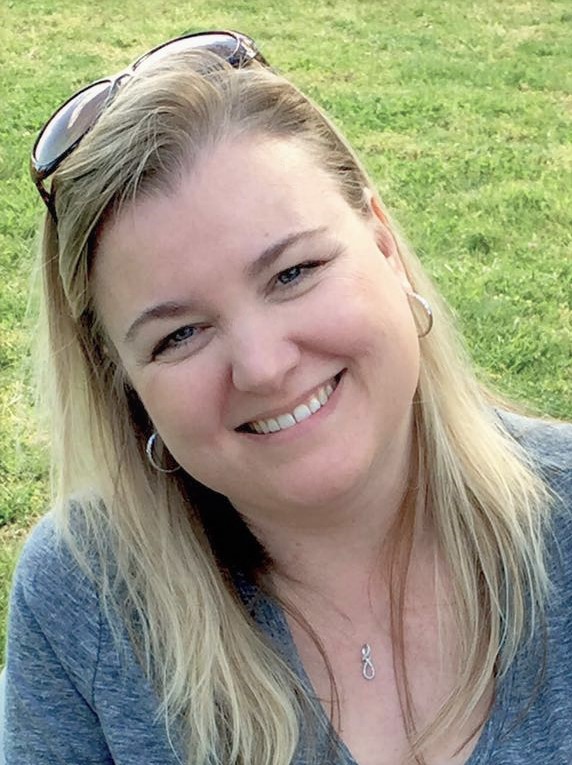
Dachelle is a working homeschooling mom of 3 in the South. At Hide The Chocolate she shares her adventures in homeschooling and parenting. She is also the author of dozens of online book clubs for kids from preschool to high school at Literary Adventures for Kids. You can often find her reading a good book (or even sometimes just an okay book) and enjoying a jar of Nutella — don’t judge. 😉
Find Dachelle online:
Hide The Chocolate on Facebook

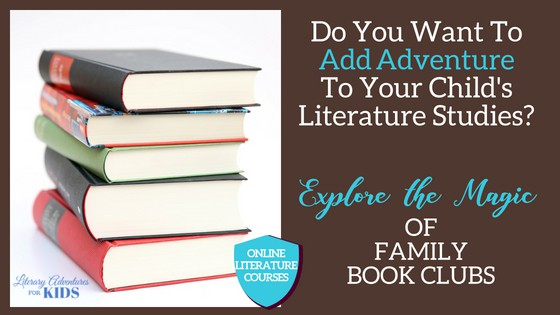
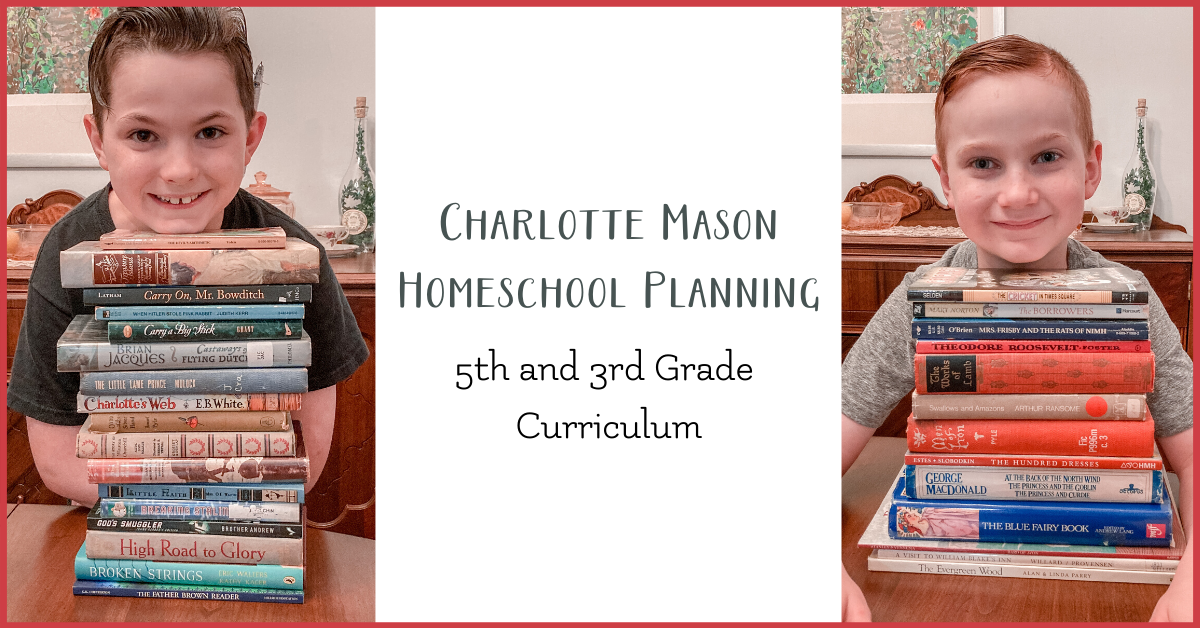

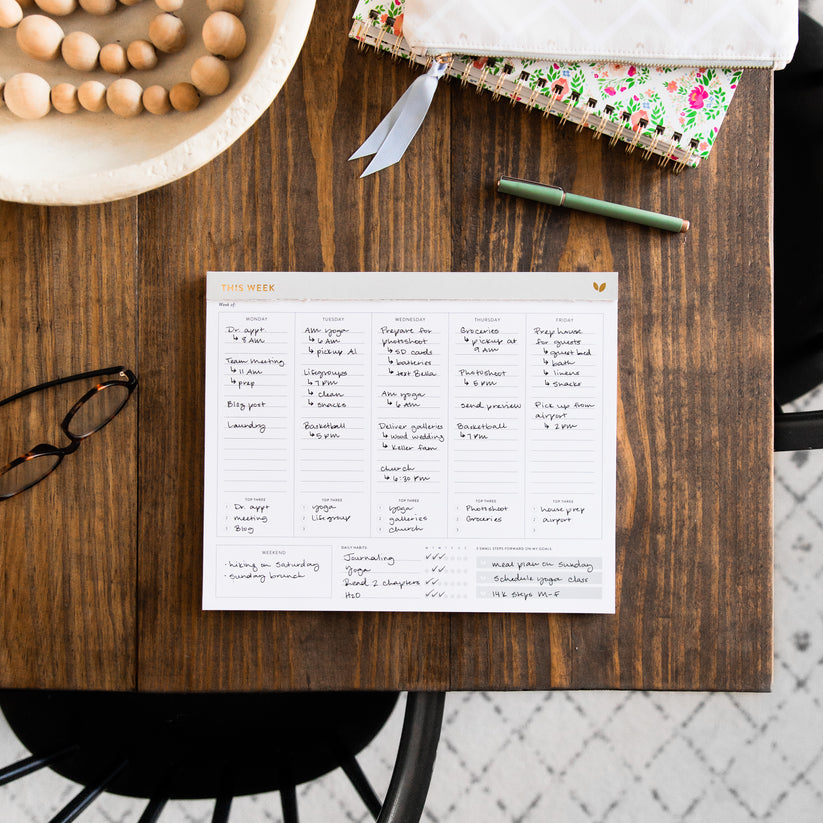
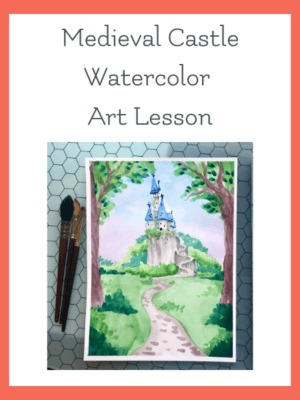
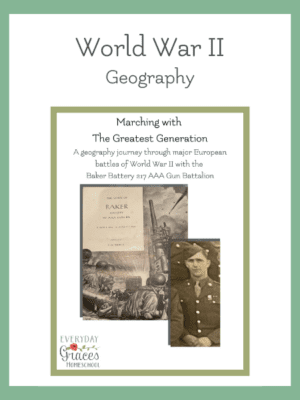
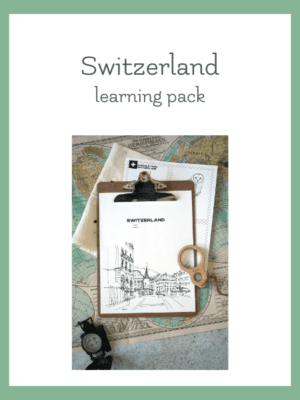
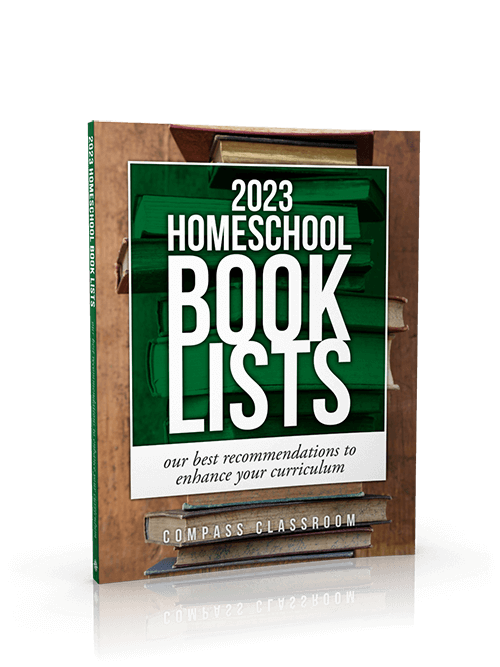
Leave a Reply